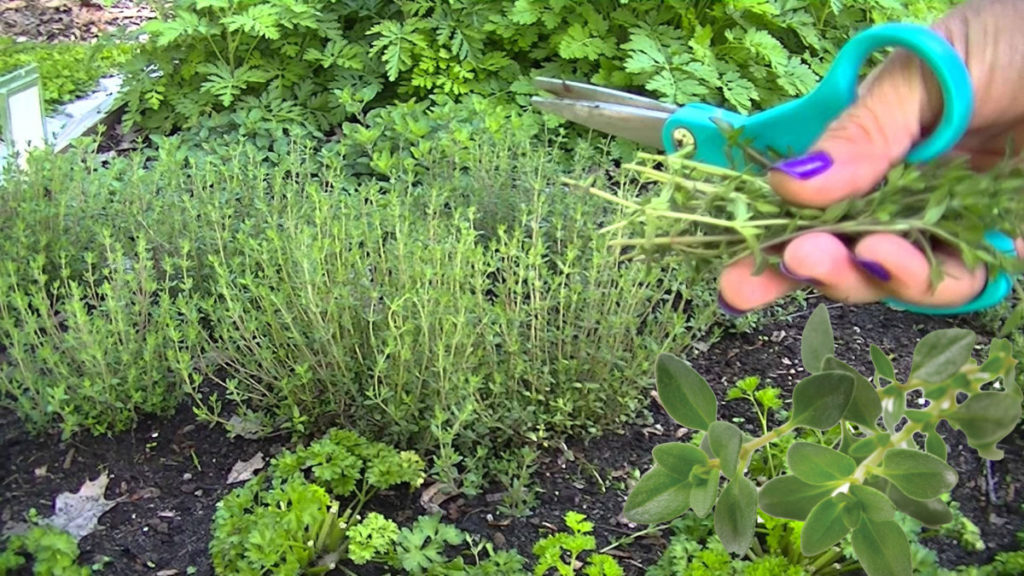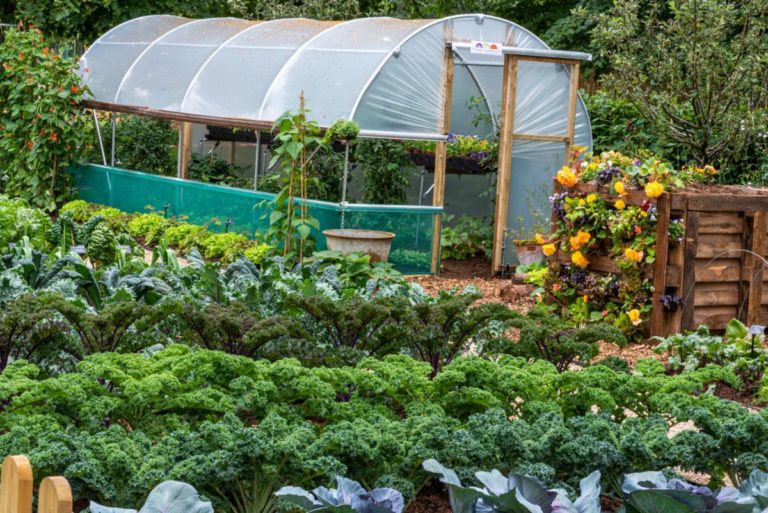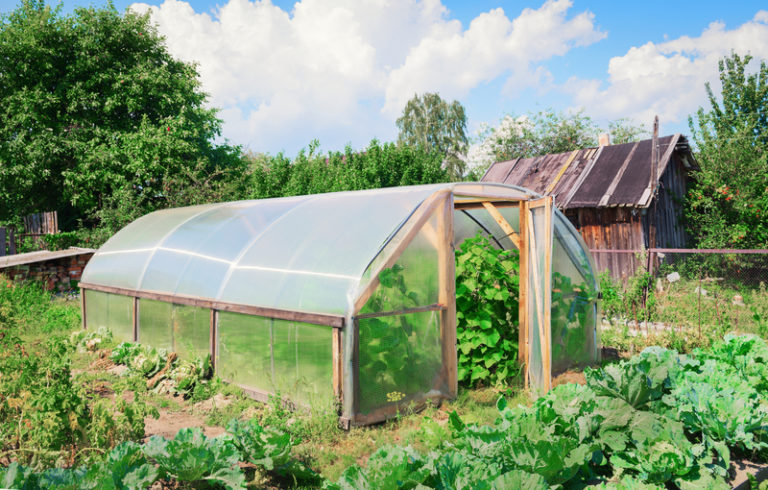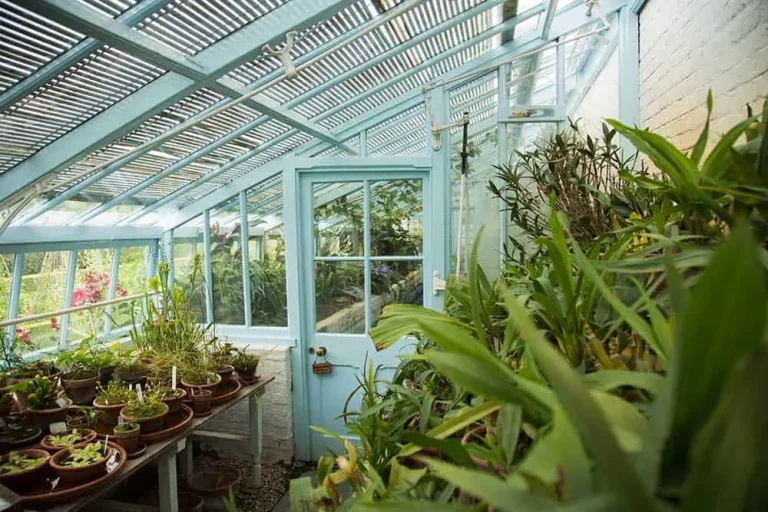If you’re just starting out in your off-grid journey and looking to cultivate some easy herbs for a successful first year, then look no further!
This article is packed with actionable tips and essential knowledge that will help you navigate the world of homegrown herbs.
From selecting the right varieties for your climate and soil type, to mastering simple yet effective gardening techniques, we’ve got you covered.
Whether you’re a seasoned green thumb or just starting out, this comprehensive guide is sure to have you enjoying fresh herbs straight from your own backyard in no time!
So what are you waiting for?
Let’s dive right in and explore the world of easy-to-grow off-grid herbs together.
Start with easy-to-grow herbs
If you’re new to gardening and living off the grid, start with herbs that are easy to grow and require minimal care. Good options include mint, lemongrass, and basil.
Begin with easy-to-grow herbs that require minimal care and offer numerous benefits!
Mint, lemongrass, and basil are top picks for new gardeners.
These hardy herbs thrive in a variety of conditions, need minimal watering and attention, and offer a bountiful harvest.
Mint, for instance, is a versatile herb that can be used in cooking, tea, and even as a natural pest repellent.
Its spreading nature means it’s perfect for container gardening or spreading throughout your landscape.
Lemongrass, another excellent choice, is known for its citrusy flavor and aroma, while also providing natural pest control and beautiful landscaping features.
Basil, a classic herb, is easy to grow and maintain, and its fragrant leaves are perfect for adding flavor to your cooking.
By starting with these easy-to-grow herbs, you’ll gain valuable experience and confidence to tackle more challenging plants and expand your off-grid garden.
Happy gardening!
Choose the right location
Most herbs prefer well-draining soil and full sun, but some can tolerate partial shade. Choose a location that gets at least 4-6 hours of direct sunlight per day.
When selecting the perfect location for your herb garden, it’s essential to consider the specific needs of each herb variety.
Most herbs prefer well-draining soil and full sun, but some can tolerate partial shade.
To ensure optimal growth and productivity, choose a location that receives at least 4-6 hours of direct sunlight per day.
This will provide the necessary light exposure for your herbs to photosynthesize and thrive.
Avoid planting herbs in low-lying areas where water may collect, as this can lead to root rot and other diseases.
Instead, opt for a location with good drainage, such as a raised bed or a location with a slight slope.
By choosing the right location for your herb garden, you’ll be setting your plants up for success and ensuring a bountiful harvest.
Prepare the soil
Herbs prefer well-draining soil that is rich in organic matter. Test your soil pH and amend it if necessary. Add compost or well-rotted manure to improve soil fertility.
To ensure optimal growth and health for your herbs, it’s essential to prepare the soil before planting.
Herbs prefer well-draining soil that is rich in organic matter, so test your soil pH and amend it if necessary.
If your soil is too acidic, you can add lime to raise the pH, while aluminum sulfate can be used to lower the pH if it’s too high.
Consider adding compost or well-rotted manure to improve soil fertility.
Compost can help to increase the soil’s water-holding capacity, improve its structure, and provide a source of nutrients for your herbs.
Well-rotted manure, on the other hand, can add beneficial microorganisms to the soil, which can help to break down organic matter and make nutrients more available to your herbs.
By taking these steps to prepare the soil, you’ll be giving your herbs the best possible start in life, setting them up for healthy growth and abundant harvests.
Water wisely
Herbs need consistent moisture, but overwatering can lead to root rot and other problems. Water deeply once or twice a week, depending on weather conditions.
Water deeply once or twice a week, depending on weather conditions
To keep your herbs healthy and thriving, it’s essential to water them wisely.
Herbs require consistent moisture, but overwatering can lead to root rot and other problems.
Instead of watering your herbs every day, it’s better to water them deeply once or twice a week, depending on the weather conditions.
This will encourage the roots to grow deeper, making the plant more resilient to drought and other stressors.
During hot and dry weather, herbs may need more frequent watering, while during cool and rainy weather, they may need less.
Observe your herbs and adjust your watering schedule accordingly to ensure they receive the right amount of moisture.
By watering your herbs wisely, you’ll be rewarded with healthy, vibrant plants that will flourish and produce an abundance of fragrant leaves and flavorful blooms.
Use raised beds or containers
If you don’t have a large yard or garden, consider using raised beds or containers to grow your herbs. These can be placed on a balcony, patio, or rooftop, and can be moved indoors during colder months.
If you don’t have a large yard or garden, consider using raised beds or containers to grow your herbs.
These can be placed on a balcony, patio, or rooftop, and can be moved indoors during colder months.
Raised beds and containers are perfect for small spaces, as they allow you to grow your herbs in a controlled environment, without worrying about soil quality or space constraints.
Plus, they can be easily moved around to accommodate different lighting and temperature conditions.
For example, you can place your herb containers on a sunny windowsill during the winter months, and then move them outside when the weather warms up.
Raised beds and containers can help to improve drainage and aeration, which can help to prevent waterlogged soil and root rot.
So, whether you have a small balcony or a spacious rooftop, raised beds and containers are a great way to grow your herbs and enjoy fresh, flavorful herbs all year round.
Harvest regularly
Regular harvesting encourages herbs to grow and produce more leaves. Pinch off the leaves and stems with your fingers or use a sharp knife or pruners to harvest.
Harvesting your herbs regularly is important to encourage healthy growth and maximize their potential.
Regular harvesting stimulates the herbs to produce more leaves and prevent them from becoming leggy and unproductive.
To harvest, simply pinch off the leaves and stems with your fingers or use a sharp knife or pruners to cut them off.
When harvesting, make sure to cut the stems just above a node, which is the joint where a leaf is attached to the stem.
This will help the plant continue to grow and produce new leaves.
It’s best to harvest your herbs in the morning, when the oils in the leaves are most concentrated.
Be sure to dry or use your harvested herbs promptly to maintain their flavor and aroma.
By regularly harvesting your herbs, you’ll not only keep them healthy and productive, but also enjoy their full flavor and aroma.
Prune your herbs
Pruning your herbs can help promote bushy growth and prevent them from flowering and going to seed. Pinch off the top inch of the stem and leaves to encourage branching.
Pruning your herbs is an essential step in maintaining their health and promoting bushy growth.
By pinching off the top inch of the stem and leaves, you are encouraging your herbs to branch out and grow more vigorously.
This technique helps to prevent the herbs from flowering and going to seed, which can lead to a less dense and more leggy plant.
By regularly pruning your herbs, you can maintain a healthy, compact shape and promote a higher yield of leaves.
To prune your herbs, start by taking a pair of clean scissors or pruning shears and cutting off the top inch of the stem and leaves.
Make sure to cut just above a node, which is the small bump on the stem where a leaf joins.
This will encourage new growth from that node and help the plant branch out.
Repeat this process every few weeks to maintain a bushy, healthy shape.
By pruning your herbs regularly, you’ll be rewarded with a bountiful harvest of delicious, flavorful leaves.
Protect from pests and diseases
Herbs can be susceptible to pests and diseases, especially when grown off the grid. Use natural pest control methods like neem oil, diatomaceous earth, and introducing beneficial insects like ladybugs. Keep an eye out for common herb diseases like powdery mildew and leaf spots, and treat with organic fungicides.
Protecting Your Herbs from Pests and Diseases: An Essential Guide for Off-Grid Gardeners
As an off-grid gardener, it’s important to take proactive measures to protect your herbs from pests and diseases.
Herbs grown off the grid are more susceptible to infestations and infections due to the lack of synthetic pesticides and fungicides.
However, there are several natural and effective methods to keep your herbs healthy and thriving.
One of the most versatile natural pest control methods is neem oil.
Derived from the seeds of the neem tree, this oil repels and kills a wide range of pests, including aphids, whiteflies, and spider mites.
Simply mix neem oil with water and spray it on your herb plants, making sure to cover all surfaces.
Repeat the treatment every few days as needed.
Another excellent natural pest control method is diatomaceous earth.
This fine, powdery substance is made from the fossilized remains of tiny aquatic organisms.
It works by dehydrating pests, causing them to die.
Sprinkle diatomaceous earth around the base of your herb plants, ensuring that the powder covers the soil and stems.
Introducing beneficial insects, such as ladybugs, is another effective way to control pests naturally.
Ladybugs prey on aphids, mealybugs, and other garden pests, providing an eco-friendly solution to pest control.
Release ladybugs in your garden, and they will do the rest.
You may also consider planting companion plants to help deter pests and diseases.
Basil, for example, is known to repel a variety of pests, including flies, mosquitoes, and spider mites.
Protecting your herb garden from pests and diseases is essential for maintaining a healthy and productive crop.
When grown off the grid, herbs can be particularly susceptible to pest infestations.
To prevent this, consider using natural pest control methods that are effective and environmentally friendly.
One approach is to mix neem oil with water and spray it on your herb plants.
This will help control a range of pests, including aphids, whiteflies, and spider mites.
Be sure to cover all surfaces of the plants, including the undersides of leaves, to ensure thorough coverage.
Another method is to plant companion plants that repel pests.
For example, basil is known to repel a variety of pests, including flies, mosquitoes, and spider mites.
By planting basil near your herb garden, you can help keep pests away and maintain a healthy and thriving herb crop.
When choosing companion plants, look for those that have a strong scent or flavor, as these are often the most effective at repelling pests.
Consider planting herbs that are known to be resistant to disease, such as rosemary or thyme.
These plants will not only be less susceptible to disease, but they will also help to improve the overall health of your herb garden.
By implementing these strategies, you can protect your herb garden from pests and diseases and enjoy a bountiful harvest.].
When it comes to protecting your herb garden from pests and diseases, there are several natural and effective methods you can use.
One approach is to use natural pest control methods, such as plants with undersides of leaves that provide thorough coverage.
For example, you can use basil to repel a variety of pests, including flies, mosquitoes, and spider mites.
By planting basil near your herb garden, you can help keep pests away and maintain a healthy and thriving herb crop.
Another effective strategy is to plant companion plants that repel pests.
Look for plants with strong scents or flavors, as these are often the most effective at repelling pests.
For example, herbs like rosemary and thyme are known to be resistant to disease and can help improve the overall health of your herb garden.
By implementing these strategies, you can protect your herb garden from pests and diseases and enjoy a bountiful harvest.
Want More? Dive Deeper Here!
Hey there! If you’re the type who loves going down the rabbit hole of information (like we do), you’re in the right spot. We’ve pulled together some cool reads and resources that dive a bit deeper into the stuff we chat about on our site. Whether you’re just killing time or super into the topic, these picks might just be what you’re looking for. Happy reading!






